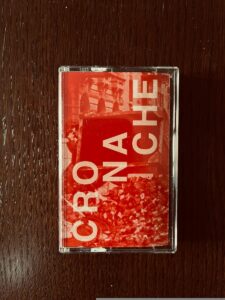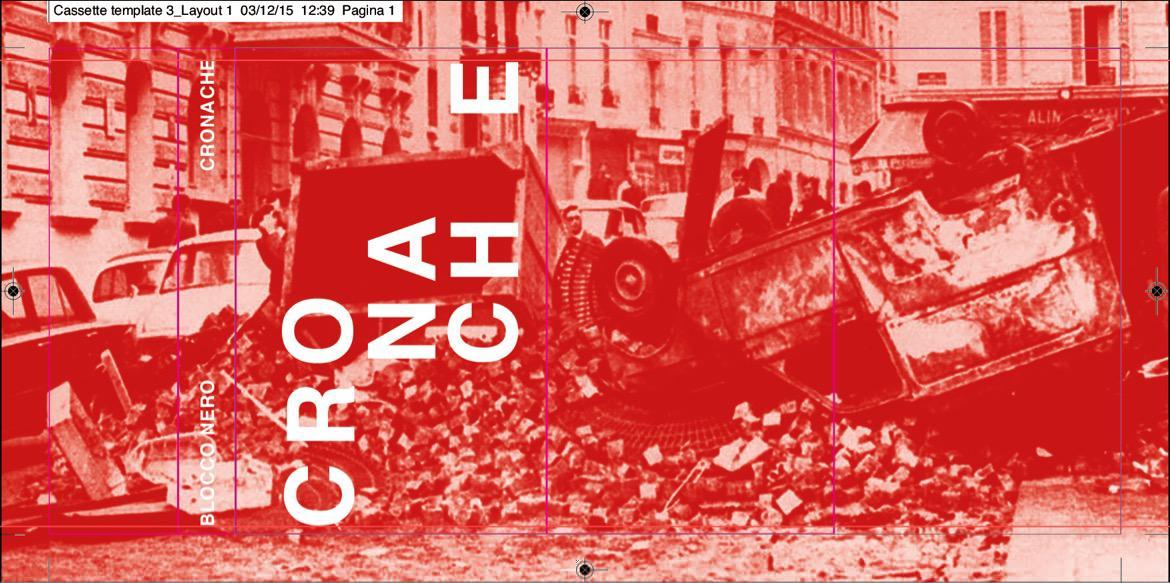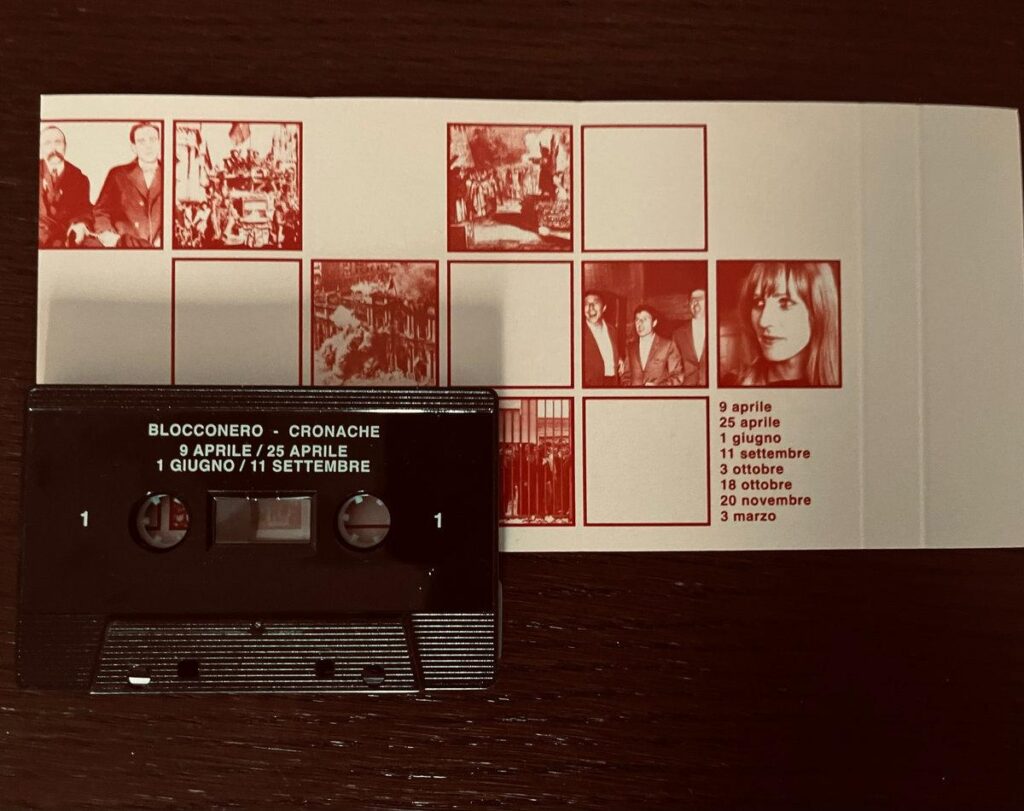[EN] The question is: why do the glorious history of Internationalism rarely got the attention of all those musical tendencies, from metal to martial industrial, intended to musically narrate epic deeds and warrior legends?
[IT] La domanda è: perché la gloriosa storia dell’Internazionalismo raramente ha riscosso l’interesse di tutte quelle tendenze musicali, dal metal all’industrial marziale, volte a narrare in musica epica gesta e leggende guerriere?
 The question is: why do the glorious history of Internationalism rarely got the attention of all those musical tendencies, from metal to martial industrial, intended to musically narrate epic deeds and warrior legends?
The question is: why do the glorious history of Internationalism rarely got the attention of all those musical tendencies, from metal to martial industrial, intended to musically narrate epic deeds and warrior legends?
After all, how many times, while listening to Arditi or Von Thronstahl we thought “what solemnity, what magniloquence… but what shitty lyrics”?
How many times did we ask ourselves how a clown such as Douglas Pearce could make such beautiful music?
And how many times, at yet another “antifascist dinner” (sic!) with Modena City Ramblers playing in the background, we felt bitterness hearing the History of class struggle trivialised through a handful of high-school slogans?
Maybe BloccoNero felt the same when they decided, ten years ago, to publish their debut “Appello N1“, a small instrumental neofolk gem, musically indebted to Rome (before his atlantist delirium). BloccoNero concept did not leave space for ambiguity, with songs like “La gioia armata” (armed joy), “Arditi del Popolo” and especially the astonishing “A un ladro” (to a thief), where sweet guitar riffs and carillons perfectly mixed, light-years before the aforementioned Rome, martial drumming and distorted vocal samplings.
Furthermore, their intentions were clear:
BloccoNero is born as an answer to the increasingly visible rightwing domination in the neo-folk world. Our reference points are to be found in the revolutionary past and present. In BloccoNero we identify all those practices and ideas that represent our theoretical horizon, from Bakunin and Malatesta, moving to Bonanno and to the situationists, over to the Black Bloc.
Then, after years of silence, they came back in November 2020 with “Октябрь”, an extraordinary dark-ambient album which, inspired by the homonymous 1927 masterpiece by Sergej Michajlovic Ejzenstejn, celebrated the greatness of the October Revolution, without the shyness and the “but however” of the horrific liberal left.
With “Cronache”, out in December 2023, BloccoNero are back to neofolk with their more diverse and complete work so far.
8 tracks, 8 stories to keep in your memory, from the anarchist Bartolomeo Vanzetti proudly raising his head in front of the Court that sentenced him and Nicola Sacco to death (9 aprile), to the complete defeat of fascists (25 aprile) until the CIA-backed coup by Pinochet in Chile which showed once and for all how bourgeois democracy is the mother of all fascisms (11 settembre), with good peace of mind of the grey-area people (the post-industrial scene, from neofolk to power electronics) who never grew up and think to épater la bourgeoisie playing a Hitler sample.
“Cronache” is, like the albums before, an instrumental work. Still, the lyrics come actually from the voices of the protagonists, in a stream of samples accompanied by guitar riffs that this time leave Rome behind to get closer to a more old-school neofolk: Death in June and Sol Invictus.
Towards the end of the album, with the masterpiece “3 marzo”, we are brought again to the dark-ambient mood of the previous album, between almost prog-trance harpers, gregorian choirs and harsh noise.
The album comes to a conclusion with an excluded track, which can be also found in the benefit compilation made by Left/Folk in solidarity with the Palestinian people. In this song too, a beautiful meeting between Muslimgauze and the Revolutionary Army of Infant Jesus, there is no place for ambiguity, starting from the title: “7 ottobre”, another date owned by History of revolting people, gory and full of defeats but glorious nonetheless.
Some rivethead “industrial enthusiastic” (really just someone who goes to goth nights and will let loose with Rammstein) will be triggered because “nooo real industrial is edgy provocative full of right-wing symbology”, showing they don’t know the basics: from SPK to Nocturnal Emissions, a plethora of bands celebrated liberation from oppression, and thus BloccoNero are perfectly in continuity with tradition, maybe even more of the umpteenth martial band that shouts “RISE EUROPE” (showing how the fascists see eyes to eyes with Ursula Von Der Leyen).
“Cronache” is then the answer to our initial question: to narrate the epic deeds of the glorious history of the oppressed there is BloccoNero.
Lukacs Golgotha
Listen to “Cronache” on Bandcamp
 La domanda è: perché la gloriosa storia dell’Internazionalismo raramente ha riscosso l’interesse di tutte quelle tendenze musicali, dal metal all’industrial marziale, volte a narrare in musica epica gesta e leggende guerriere?
La domanda è: perché la gloriosa storia dell’Internazionalismo raramente ha riscosso l’interesse di tutte quelle tendenze musicali, dal metal all’industrial marziale, volte a narrare in musica epica gesta e leggende guerriere?
Del resto, quante volte ascoltando gli Arditi o Von Thronstahl abbiamo pensato “Che solennità, che magniloquenza…però che testi del cazzo”?
Quante volte ci siamo chiesti/e come potesse fare musica tanto bella un pagliaccio come Douglas Pearce?
E quante volte, all’ennesima “pastasciutta antifascista” (sic!) con i Modena City Ramblers in background abbiamo provato amarezza nel sentire la Storia della lotta di classe banalizzata in quattro slogan da liceo?
Ecco, forse è successa la stessa cosa ai BloccoNero quando hanno deciso, dieci anni fa, di dare alle stampe il loro debut “Appello N1“, un piccolo gioiello di neofolk strumentale molto debitore musicalmente a Rome (all’epoca non ancora in delirio atlantista). Il concept di BloccoNero non lasciava spazio ad ambiguità, con canzoni come “La gioia armata”, “Arditi del popolo” e soprattutto la stupenda “A un ladro”, dove i dolci passaggi di chitarra e carillon si amalgamavano perfettamente, anni luce avanti al succitato Rome, alla batteria marziale e ai sample vocali distorti.
Chiara era anche la loro dichiarazione d’intenti:
BloccoNero nasce come risposta al sempre più visibile regno delle destre nel mondo del neo-folk. I nostri riferimenti culturali sono da cercarsi nel passato e nel presente rivoluzionario. Nel BloccoNero identifichiamo tutte quelle pratiche e idee che rappresentano il nostro orizzonte teorico partendo da Bakunin e Malatesta, passando per Bonanno e i situazionisti fino al Black Bloc.
Poi dopo anni di silenzio, nel novembre 2020 erano tornati con “Октябрь”, magnifico disco dark-ambient che, ispirato all’omonimo capolavoro del 1927 di Sergej Michajlovic Ejzenstejn, celebrava la grandezza della Rivoluzione d’Ottobre, senza le timidezze e i “ma però” dell’orrida sinistra liberale.
Con “Cronache”, uscito nel dicembre 2023, i BloccoNero tornano al neofolk con il loro album più vario e completo.
8 tracce, 8 storie da conservare nella memoria, dall’anarchico Bartolomeo Vanzetti che alza il capo fiero davanti alla Corte che ha condannato a morte lui e Nicola Sacco (9 aprile) alla totale sconfitta dei fascisti (25 aprile) fino al golpe della CIA e di Pinochet in Cile che dimostrò una volta per tutte quanto la democrazia borghese sia la madre dei fascismi (11 settembre), con buona pace di tanta gente mai cresciuta della “grey area” (la scena post-industrial, dal neofolk al power electronics) che pensa di épater la bourgeoisie mettendo un sample di Hitler.
“Cronache” è, come i precedenti, un disco strumentale, ma in realtà le liriche son date dalla voce diretta dei protagonisti, in un profluvio di sample accompagnati da giri di chitarra che stavolta abbandonano Rome per avvicinarsi al neofolk più old-school, Death In June e Sol Invictus.
Nel finale, con il capolavoro “3 marzo”, si torna al dark-ambient del disco precedente, fra arpeggiatori quasi prog trance, cori gregoriani e harsh-noise.
Il disco si completa poi con una traccia non inclusa, che si può però trovare nella compilation benefit di Left/Folk in solidarietà al popolo palestinese. Anche in questa canzone, uno splendido incontro fra Muslimgauze e i Revolutionary Army of Infant Jesus, non c’è spazio per l’ambiguità a partire dal titolo: 7 ottobre, un’altra data che appartiene alla Storia dei popoli in rivolta, cruenta e piena di sconfitte ma gloriosa.
Qualche testa-a-chiodo “appassionato di industrial” (in realtà mero frequentatore di serate goth in cui si scatenerà ascoltando i Rammstein) griderà allo scandalo perché “gnoooo l’industrial vero è ambiguo provocatorio pieno di simbologie di destra” dimostrando di non conoscerne l’ABC: dagli SPK ai Nocturnal Emissions una pletora di progetti hanno celebrato la liberazione dall’oppressione, e proprio per questo i BloccoNero si pongono perfettamente in continuità con la tradizione, forse ancor di più che l’ennesimo gruppo marziale che grida “RISORGI EUROPA” (dimostrando che i fasci sono in piena sintonia con Ursula Von Der Leyen).
“Cronache” è quindi la risposta alla nostra domanda iniziale: a narrare le epiche gesta della gloriosa storia degli oppressi e delle oppresse ci sono i BloccoNero.
Lukacs Golgotha


